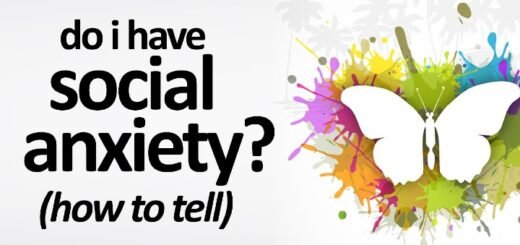Understanding Childhood Bullying and Social Phobia in NZ
Childhood bullying has profound implications for mental health, particularly in the development of social phobia. In New Zealand, where the prevalence of bullying in schools can significantly impact a child’s social development, understanding this connection is crucial for families. Social phobia, characterized by intense fear of social situations, can stem from negative experiences during formative years, making it essential for parents and educators to recognize the signs early on.
New Zealand families must be equipped with knowledge and strategies to address bullying and its consequences. By fostering supportive environments and encouraging open conversations about social phobia, families can help mitigate its effects. For further insights on the causes and implications of social phobia, visit Social Phobia New Zealand. Understanding the role of childhood bullying is a vital step toward promoting healthier social interactions and emotional well-being for our youth.
Understanding Childhood Bullying and Its Impact
Childhood bullying is a pervasive issue that affects many children across New Zealand. It can take various forms, including physical, verbal, and relational bullying. Victims often experience a range of emotional and psychological consequences that can extend well into adulthood. Research shows that children who are bullied are more likely to develop mental health issues, including social phobia. Social phobia, characterized by a persistent fear of social interactions and situations, can be debilitating and affect various aspects of life, including education and personal relationships.
The impact of bullying on a child’s self-esteem and social skills can be profound. A child who is bullied may begin to internalize negative messages about themselves, believing they are unworthy or unlovable. This negative self-perception can lead to avoidance behaviors, where the child steers clear of social situations to avoid further humiliation. Such patterns can create a cycle that reinforces anxiety and fear, paving the way for social phobia to develop. For New Zealand families, recognizing the signs of bullying and understanding its long-term implications is crucial in supporting their children.
Signs of Social Phobia in Children
Recognizing the signs of social phobia in children is essential for early intervention. Children experiencing social phobia may exhibit intense fear or anxiety in social situations, leading to avoidance behaviors. Common signs include excessive worrying about social interactions, fear of embarrassment, and physical symptoms such as sweating or trembling when faced with social scenarios.
Parents in New Zealand should be vigilant for these indicators, especially if their child has a history of bullying. If a child becomes increasingly withdrawn, refuses to attend school events, or avoids playdates with peers, these may be red flags that merit further investigation. Engaging in open conversations about their feelings and experiences can provide insight into their emotional state. For additional resources and support regarding social phobia, families can visit Social Phobia New Zealand, which offers valuable information and guidance for those affected.
The Connection Between Bullying and Social Phobia
The link between childhood bullying and the development of social phobia is well-documented. Bullying creates a foundation of fear and anxiety that can manifest in various mental health disorders. Victims of bullying often struggle with trust issues, which can hinder their ability to form healthy relationships in the future. This lack of connection can exacerbate feelings of isolation and amplify the symptoms associated with social phobia.
In New Zealand, cultural factors may also play a role in how children cope with bullying and the subsequent development of social phobia. The importance of community and relationships in Māori and Pacific cultures highlights the need for supportive networks to assist children in navigating their social environments. By fostering strong family connections and encouraging open dialogues about emotional well-being, families can help mitigate the effects of bullying and reduce the likelihood of social phobia.
Strategies for Parents to Support Their Children
Supporting children who have experienced bullying and may be developing social phobia requires a proactive approach from parents. One effective strategy is to foster an environment of open communication where children feel safe to express their feelings. Encouraging children to share their experiences and emotions can help them process their trauma and feel understood.
Additionally, teaching coping mechanisms is crucial. Techniques such as mindfulness, deep breathing exercises, and positive visualization can empower children to manage their anxiety in social situations. Role-playing scenarios can also be beneficial, allowing children to practice social interactions in a safe space. New Zealand families can engage in community programs that focus on resilience-building and social skills development, helping children navigate their social world more confidently. For further insights into managing social phobia, parents can refer to Social Phobia New Zealand.
The Importance of Seeking Professional Help
When childhood bullying leads to pronounced symptoms of social phobia, seeking professional help is essential. Mental health professionals can provide therapeutic interventions that address both the trauma of bullying and the anxiety associated with social phobia. Cognitive-behavioral therapy (CBT) is particularly effective, as it helps children reframe negative thoughts and develop healthier coping strategies.
In New Zealand, there are various resources available for families seeking mental health support. Schools often have counselors who can provide initial guidance and referrals to specialized services. Additionally, organizations such as the Social Phobia New Zealand offer resources and support for families navigating these challenges. Early intervention can significantly improve outcomes, allowing children to build resilience and develop healthier social skills.
Building Resilience and Social Skills
Resilience is a vital trait for overcoming the effects of childhood bullying and preventing the onset of social phobia. Parents can play a crucial role in helping their children build resilience by promoting a growth mindset and encouraging them to face challenges head-on. Engaging in activities that foster teamwork, such as sports or group projects, can also enhance social skills and confidence.
In New Zealand, various community programs focus on building resilience among youth. Local sports teams, arts programs, and youth clubs provide opportunities for children to interact with peers in a supportive environment. Parents should also model healthy social behaviors and demonstrate how to handle social situations with confidence and grace. For additional resources on social phobia and resilience-building, families can explore Social Phobia New Zealand for valuable insights.
Creating a Supportive Community
Creating a supportive community is essential in addressing the issue of childhood bullying and its connection to social phobia. Schools, families, and community organizations must work together to foster an environment that prioritizes emotional well-being and inclusivity. Implementing anti-bullying programs in schools can significantly reduce bullying incidents and promote a culture of respect and kindness.
Parents can also play a role by advocating for mental health awareness and support within their communities. By participating in local initiatives, families can contribute to a broader understanding of social phobia and the experiences of those who have been bullied. Encouraging open discussions about mental health can help destigmatize these issues and create an atmosphere where children feel safe to seek help. For more information on supporting children with social phobia, visit Social Phobia New Zealand, a valuable resource for families.
FAQs
What is the connection between childhood bullying and social phobia?
Childhood bullying can significantly impact a child’s development and mental health. Research indicates that children who experience bullying are at a higher risk of developing social phobia later in life. The negative social experiences associated with bullying can lead to increased anxiety in social situations, making it difficult for individuals to engage with peers and form relationships.
How can parents in New Zealand identify if their child is experiencing social phobia?
Parents should look for signs such as excessive fear of social situations, avoidance of interactions with peers, and physical symptoms like sweating or trembling when faced with social engagements. Open communication and observation of changes in behavior can help parents identify if their child may be struggling with social phobia.
What steps can families take to support a child who has been bullied?
Families can support a child who has been bullied by fostering a safe and open environment for discussion. Encouraging the child to express their feelings, seeking professional help if needed, and promoting positive social interactions can aid in building resilience and reducing the risk of developing social phobia.
Are there specific resources available for New Zealand families dealing with bullying and social phobia?
Yes, New Zealand offers various resources, including counseling services, support groups, and educational programs aimed at addressing bullying and social anxiety. Organizations such as the New Zealand Mental Health Foundation provide valuable information and support for families facing these challenges.
Can early intervention help prevent the development of social phobia?
Absolutely. Early intervention is crucial in addressing the effects of bullying. By providing children with coping strategies and fostering social skills at a young age, parents and caregivers can help mitigate the risks associated with bullying and reduce the likelihood of developing social phobia.
What role do schools play in preventing bullying and addressing social phobia?
Schools play a vital role in creating a safe environment for children. Implementing anti-bullying programs, providing mental health resources, and training staff to recognize and address signs of social phobia can significantly contribute to the well-being of students and help prevent the escalation of bullying-related issues.
How can children themselves cope with the effects of bullying and potential social phobia?
Children can learn coping strategies such as practicing mindfulness, engaging in positive self-talk, and participating in activities that build confidence and social skills. Encouraging friendships and involvement in group activities can also help children develop resilience and combat feelings of anxiety associated with social phobia.
References
- Social Phobia New Zealand – A dedicated resource providing information and support for individuals and families dealing with social phobia, including insights on the impact of childhood experiences such as bullying.
- The Relationship Between Bullying and Social Anxiety – An article from Psychology Today discussing how childhood bullying can contribute to the development of social anxiety in later life.
- Childhood Bullying and Adult Anxiety Disorders: A Longitudinal Study – A research study published in the Journal of Anxiety Disorders exploring the long-term effects of childhood bullying on adult anxiety disorders, including social phobia.
- Social Anxiety and Bullying – A resource from The Anxiety Coach detailing the connection between experiences of bullying in childhood and the development of social anxiety later in life.
- Mental Health and Bullying – A report from the Mental Health Foundation of New Zealand that examines the impact of bullying on mental health, including the development of social anxiety and phobias in children.




